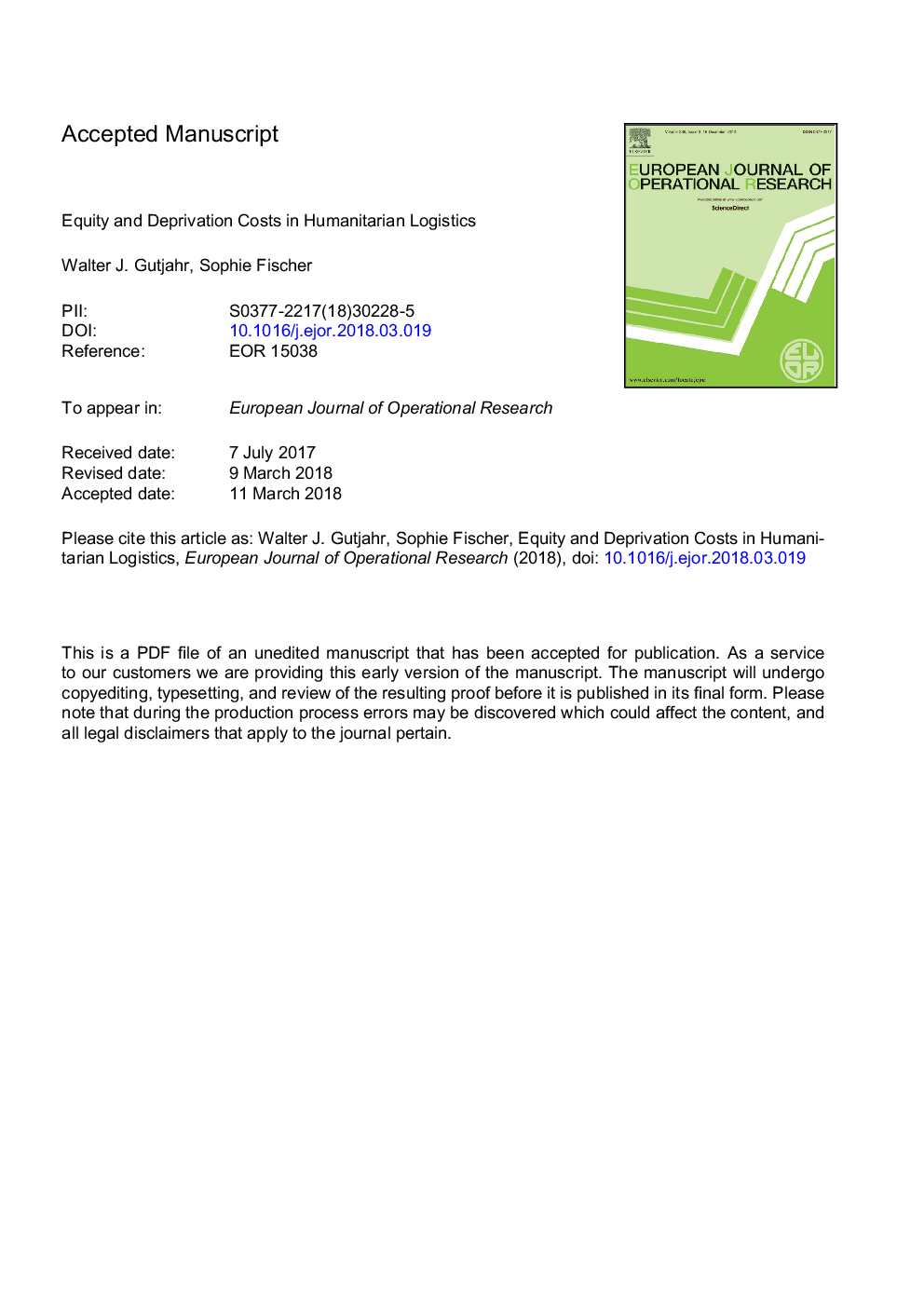ترجمه فارسی عنوان مقاله
هزینه های مسکن و حقوقی در تدارکات انسانی
عنوان انگلیسی
Equity and deprivation costs in humanitarian logistics
| کد مقاله | سال انتشار | تعداد صفحات مقاله انگلیسی |
|---|---|---|
| 89885 | 2018 | 31 صفحه PDF |
منبع

Publisher : Elsevier - Science Direct (الزویر - ساینس دایرکت)
Journal : European Journal of Operational Research, Available online 20 March 2018
ترجمه کلمات کلیدی
تدارکات بشردوستانه، انصاف، بهینه سازی ناسازگاری، اخلاق، ضریب جینی،
کلمات کلیدی انگلیسی
Humanitarian logistics; Equity; Inequity-averse optimization; Ethics; Gini coefficient;

